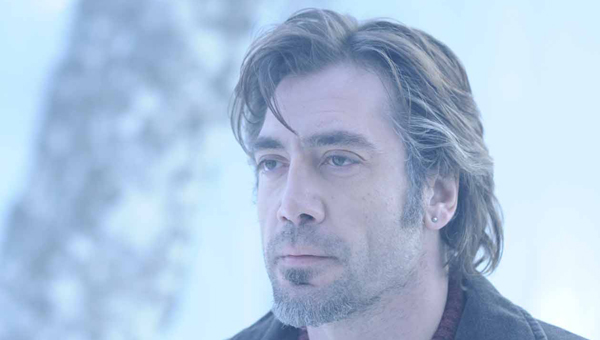Biutiful DVD Review

Life isn’t beautiful.
At least this seems to be the overwhelming message Mexican director Alejandro Gonzalez Inarritu communicates in his bleak yet powerful feature Biutiful.
The film opens with young man talking irreverently to another who looks old enough to be his father, set against the stunning backdrop of a frozen landscape.
This older man is Uxbal, a person we soon learn embodies both the dark and light tendencies of human nature.
Uxbal is involved in some less than beautiful dealings with his brother, Tito. Together, they run an underground criminal empire; selling drugs on the hectic streets of Barcelona and trafficking Chinese refugees into slave labour through their shady contacts in the construction world.
Yet, while his brother lives a life of excess and indulgence, Uxbal is humble. He cares for the people he takes advantage of, who consider him a friend, and provides a stable family environment for his two young children in spite of their estranged mother’s instability and habitual substance abuse.
Uxbal has a problem though, he’s dying. With time running out, Uxbal’s desperation leads him down an even darker path so that he can provide for his children after he’s gone.
Anyone familiar with Alejandro Gonzalez Inarritu’s work, the auteur behind Babel, 21 Grams and Amores Perros, will know what to expect from Biutiful.
Inarritu is the modern cinematic prince of hard hitting, compelling human dramas that explore the tragic fragility of human nature. And Biutiful is no exception to this rule.
It’s essentially the story of a decent man adrift in our modern way of life. Caught between doing what he knows to be right, and what is right for himself and his young family, Uxbal is a complex character who walks the line between these two worlds; never really fitting wholly into one or the other.
It seems something of cliché now for Hispanic directors such as Pedro Almodovar, Alfonso Cuaron and Inarritu to repeatedly focus on the inevitable dysfunctionality of the human soul; but in the face of hollywood’s endless production line of identikit features, this is still a refreshing stereotype.
The multi layered characterisation of Uxbal, Biutiful’s “hero” whom the audience are supposed to identify with, is a fitting antidote to the one dimensional fare offered up by most mainstream cinema; where the good guys wear white and the bad guys look real ugly.
Reliably enough, Javier Bardem is disconcertingly convincing as Biutiful’s protagonist Uxbal. His alpha male presence lends credibility to whatever screen role I’ve seen him in, and here he uses it to portray a man guilty of terrible deeds with both dignity and grace.
The script itself also typifies that non american style of film making. Thing’s are not spelt out for the audience, with the distinction between Biutiful’s beginning, middle and end less defined and more blurred then in most mainstream movies.
Not everything gets wrapped up in a neat little bow because life isn’t like that.
As every Inarritu fan has come to expect, Biutiful’s cinematography is stunning. Visually rich shots of Barcelona’s seedy underbelly juxtapose in stark contrast to the natural beauty found away from this city’s urban slums.
Like anyone who’s lived in London Town long enough, I found it all too easy to relate to the metropolitan themes raised by Biutiful; those things you notice going on around you but do your best to ignore as you navigate a course through your own city adventure.
Sometimes life isn’t beautiful, although Inarritu seems to have found the beauty within this.
Jonathan Campbell